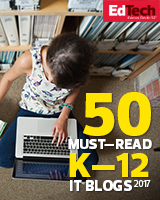The beauty of the Internet is that sometimes things all come together – you read a couple of online articles and store them for further study, you decide to catch up on your RSS feeds and run across an interesting blog post, your son’s college class schedule arrives in the mail and . . . well, you know what I’m talking about.
It’s the perfect storm of world wide webness.
 I recently browsed through a June NPR transcript discussing the value of a college education. Mike Rose, author of Why School?, was sharing some of the ideas he included in his book. Yesterday, while catching up with old blog posts, I read a quick essay by Doug Johnson of the Blue Skunk Blog. A couple of days ago, an editorial by Paul Krugman caught my eye. And earlier this week, my son’s freshman class schedule shows up at our house.
I recently browsed through a June NPR transcript discussing the value of a college education. Mike Rose, author of Why School?, was sharing some of the ideas he included in his book. Yesterday, while catching up with old blog posts, I read a quick essay by Doug Johnson of the Blue Skunk Blog. A couple of days ago, an editorial by Paul Krugman caught my eye. And earlier this week, my son’s freshman class schedule shows up at our house.
Together, all of these got me thinking about a question often discussed where I work:
What is the value of an education and what should it look like?
As a social studies guy, the question becomes even more important and more specific.
What is the value of an education in a democracy?
It seems understandable in today’s economic environment that the answer to the first question sounds something like this:
K-12 education should be focused on getting a good job, preparing kids to be successful in their occupations and all curriculum should be tied to the career clusters. And any post-secondary choices should be about the ROI – Return On Investment.
I get it.
Yes, I want my kid to get a job after college. No, I don’t want him to have a ton of loans to pay back. But I think sometimes we miss the point. Education is not always about making more money. Rose says that education is also about
learning things to enable you to do things with your life, to enable you to find interests and pursuits that may in some way or another expand the way we see things.
Johnson quotes Sydney Harris
The primary purpose of a liberal education is to make one’s mind a pleasant place in which to spend one’s leisure.
I like that.
But I think in the US, it needs to be more. Rose mentioned the Jeffersonian ideal that having a functioning democracy requires having an educated citizenry.
So . . . K-12 and post-secondary education in a democracy should also be about learning to think together, learning to attack problems together and learning how to disagree. It needs to be about changing your mind because the facts say you should even though it doesn’t “feel” right. An education in a democracy means learning to accept the idea that others may not agree with you and that doesn’t necessarily make them bad people. Education in the United States doesn’t have to just be about making money. It should be, and needs to be, about learning to think critically, arguing fairly and compromising for the sake of others.
Can you learn this kind of stuff in a setting other than a traditional college? Yes. But I think in other settings it is more difficult. Why? Because the other settings almost always focus on specific vocational training. Are these other settings better or worse than a traditional college setting? It depends a lot on how you answer the question we started with. Getting a job is important. Paying the bills is important. But an educated citizenry is too.
Paul Krugman, in Sunday’s editorial page of the New York Times, suggests that in today’s world
willful ignorance has become a litmus test for candidates.
If we want to truly live up to Jefferson’s ideal, that has to change. Because democracy is expensive in ways that can’t be paid for with money.
And, yes, my son will leave in a few weeks for his first year as a college student.
Because it’s worth it.























